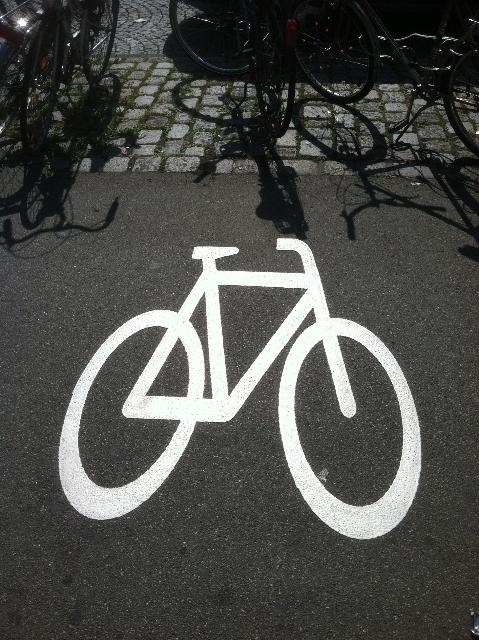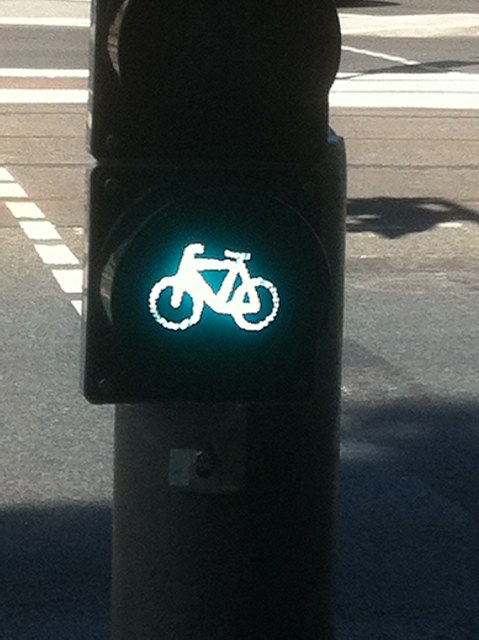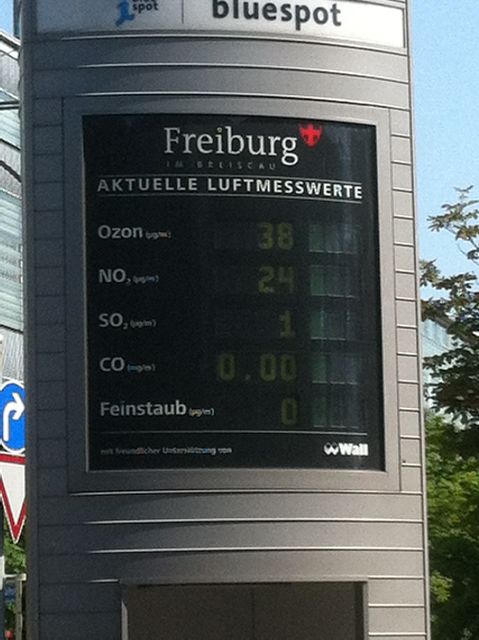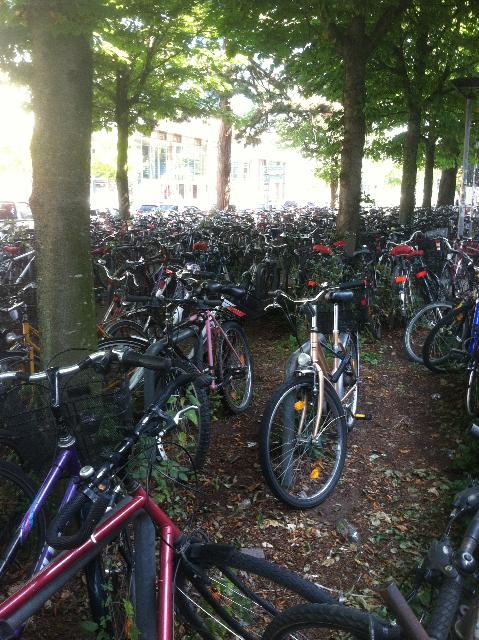A regular reader of this blog sent me an interesting e-mail about a trip he took to Germany over the summer. He said he was writing to me because he had often read on my blog about how much animosity there was towards cycling and cyclists in the U.S. And, he wanted to show me how different things were in other parts of the world.
In particular, he visited “a university town of ~200,000 people, called Freiburg, which is located in the southwest corner of the country [Germany] (very close to both France and Switzerland).” His impression was that outside of the Netherlands, this was one of the most bicycle-friendly places in Europe.
Here is what he described about how central bicycles were to life in this part of the world:
“There are bike lanes everywhere (often denoted by large pictures of bikes painted on the road), and it seems like everyone rides a bike.

Bike riding is not only tolerated, but is part of the culture. As a pedestrian you really have to know the rules, because if you don’t there is a significant chance of being run over by a cyclist! Note that in many places where you might expect to see a walk sign for pedestrians they have traffic lights for bikes.

Overall, the city is very “green” (apparently the mayor is a member of the Green party), and they even have an electronic board that shows the current air quality.

There are enormous parking lots for bikes outside of the train station which I tried to photograph, but I really had difficulty capturing them in their entirety (and the lighting was terrible).

I know that my photos aren’t the greatest (I guess you can’t expect much from a cell phone camera), but feel free to use them if you want.”
After reading this reader’s e-mail, and reviewing the photos he attached, I began to think about how different transportation culture is in other parts of the world. It’s not as if Germany is a third world country. It’s a highly developed country. And yet, the transportation culture does not solely revolve around motor vehicles.
What’s even more amazing about this is the acceptance of bicycles as a mode of transportation when Germany produces some of the finest luxury and sports cars in the world. They are known for building fast, brilliantly engineered, durable cars. If anyone knows and appreciates cars, it’s the Germans. This, however, has not stopped them from adopting green policies and healthier lifestyles.
Of course, the town this reader visited was a university town. Students and academics are often more liberal in their thinking and value things like saving the environment and improving public health. So, after reading the e-mail, a little more investigation into Germany’s bike culture was in order to determine whether this town accurately represented the country as a whole.
Some research turned up a few interesting tidbits such as: “Although Germany is well-known for its automobiles and speed-limit-free autobahn, it should also be considered a cycling nation as well. There are 40% more bicycles than cars. Two out of five German vacationers take bicycle vacations too. Well over 7,400 miles of dedicated, car-free cycling routes make it an ideal place for vacationers of any age and fitness level. Many routes lead through flat areas or along rivers, cycling is a perfect way to relax and recover. In a week or two you can see and do a lot: celebrate vibrant wine festivals along the Rhine, marvel at hand-made filigree Meissen Porcelain in Dresden, or experience Bavarian traditions and mouth-watering cuisine.” On the website where I found it, this information was attributed to Andre Volkel of Mercurio Bike Travel.
This seems like a paradox. A country known for its automobiles and speed-limit-free roads has adopted the bicycle as a viable way to travel. Clearly, bicycles are not just for recreation in Germany. They are an important part of daily life.
If a country known for its cars can integrate bicycles into the daily life of its citizens, why can’t the U.S. do the same? Why can’t American citizens see the quality of life benefits reaped by all when a large percentage of citizens use bicycles to meet their basic transportation needs? And, why must Americans see transportation as an either/or proposition, namely, we must either reserve the roads for motor vehicles to preserve our quality of life or we will destroy our transportation infrastructure by giving too much space (and consideration) to bicycles.
Although I’ve never been to Germany, I’m more inclined to visit now, since I know that the country is bicycle-friendly. It is a place where my choices and lifestyle will be welcome. Despite being an “outsider” in some ways, as a cyclist, I will fit into their culture more than my own. I’d like to spend time in a place like that. But, more importantly, I’d like my own country, the U.S., to learn from other developed nations who see automobiles as only one part of life and only one type of transportation.
We must keep our minds open to making lifestyle changes, which will ultimately create less congested roads, a fitter population, less stressful surroundings and a healthier environment. Let’s view our fellow cyclists in Germany as inspiration for changes to our own country. One never knows: perhaps, in time, we will catch up to them in bike-friendliness and will barely remember the time when motorists and cyclists vied for space and rights on American roads.
[Note: Please leave comments on the new blog.]



